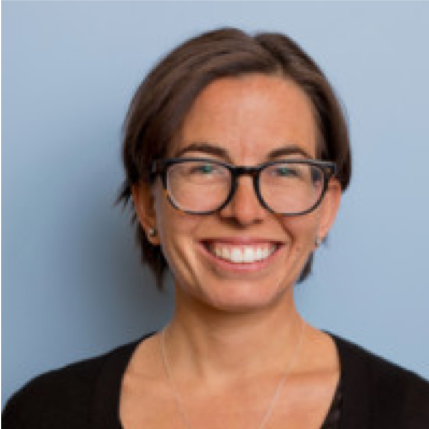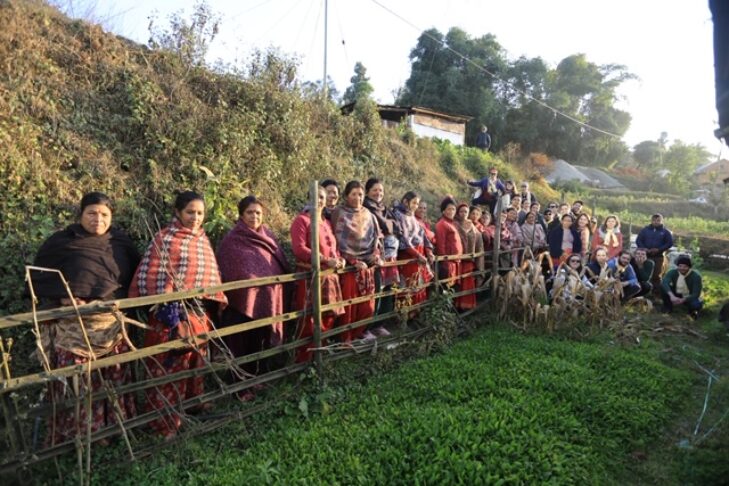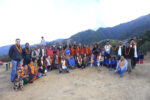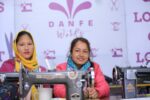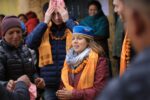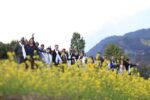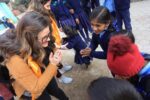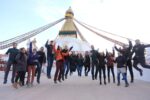A Nepalese family of five gathers by the glow of the fire. The embers burn bright as they sip tea and warm the palms of their hands. A small child pops candy in his mouth. A mother scoops water out of a bucket and rings a rag. The father carries a basket full of wooden flutes ready to sell on the crowded streets of Kathmandu.
Crowded is not the word to describe Kathmandu. Crowded is for grocery store parking lots and Boston highways. Bursting is the word to describe life in Nepal. It is bursting with energy, pulsing with color and sound and smog and spices. And then the lights go out. This has happened a few times during our trip. Mid PowerPoint or restaurant meal or shower, the electricity temporarily shuts off. We pause, hold our breaths and then—power or not—resume the activity. No matter the obstacle, life moves like a mighty, roaring river here.
The people and organizations we’ve met in Nepal reflect this collective burst of energy, resiliency and ingenuity. Learning that one in three children experiences sexual abuse in Nepal and that one in four people have cancer is paralyzing. Think about that. It is a bulldozing, incompressible thought. And yet, in spite of these seemingly insurmountable challenges, we met Nepalese people working tirelessly to reverse these statistics. They are raising donor dollars, managing staff and rallying resources to create a new paradigm in Nepal, many of which are supported in some way by Israel.
Kind smiles welcomed us today, our last full day in Nepal, as we embarked on a farm tour in Lalapur. This community was heavily impacted by the 2015 earthquake and now, because of a partnership with Jewish World Relief, is thriving with crops. The women in the lush, sun-soaked village among the rolling Himalayan hillside beamed with pride as they told us they earn $5,000-$10,000 per year because of their farm. (The average Nepalese person earns $1,000 per year, or $3 per day.)
The Nepalese people have inspired us and moved us beyond what we imagined possible. In each rural village, the people appeared to have so little in material goods, yet embraced us in traditional “welcoming ceremonies” with scarves, homemade marigold-strung necklaces, piping hot tea and endless hospitality. Just as we learned what it is to be warmly welcomed, so too are we learning to depart. During our closing circle tonight, our group reflected on how close we’ve become in such a short amount of time. We collectively shared how the resilience of the Nepalese people has inspired us to re-examine our careers, what we are most proud of and reflect on Israel’s fierce commitment to international aid.
It is most fitting that we spent our last evening at a Nepalese dance restaurant brimming with people of all ages. As we ate a traditional meal, we relived the busy days full of temple visits, bumpy Jeep rides and all the incredible change-makers we met. We said our thank yous to our wonderful guide, Sanjeeb, our ever-smiling photographer, Billy, and our loving security guard, Baruch. We promised one another this isn’t the end, but just the beginning. The music blasted and we rejoined the dance floor. Lost in the night, we made new friends and belted pop Nepalese songs while breaking a sweat, engulfed by the bright flames of hope surrounding us.
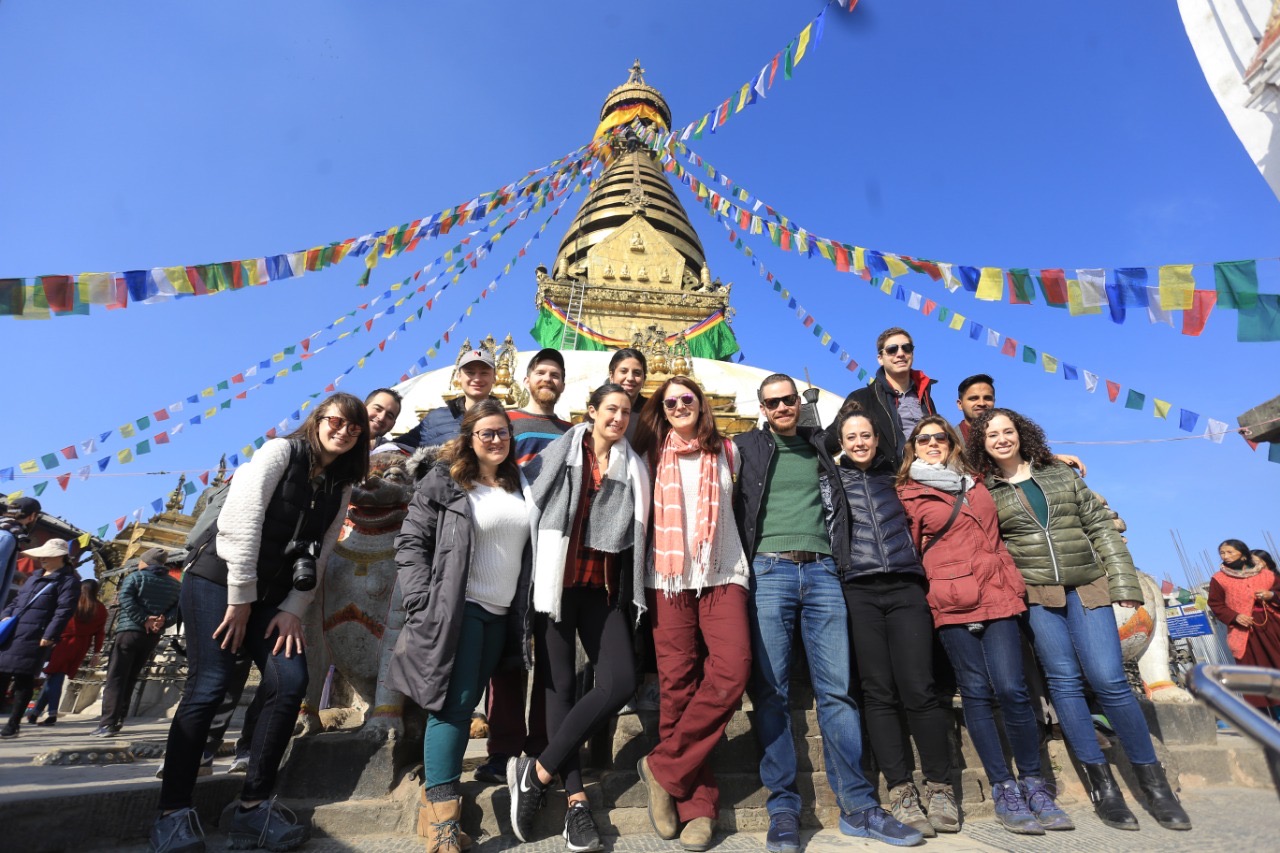
Follow along:
Blog: JewishBoston.com
Facebook: Project Inspire
Twitter: @CJPIsrael & @CJPBoston
